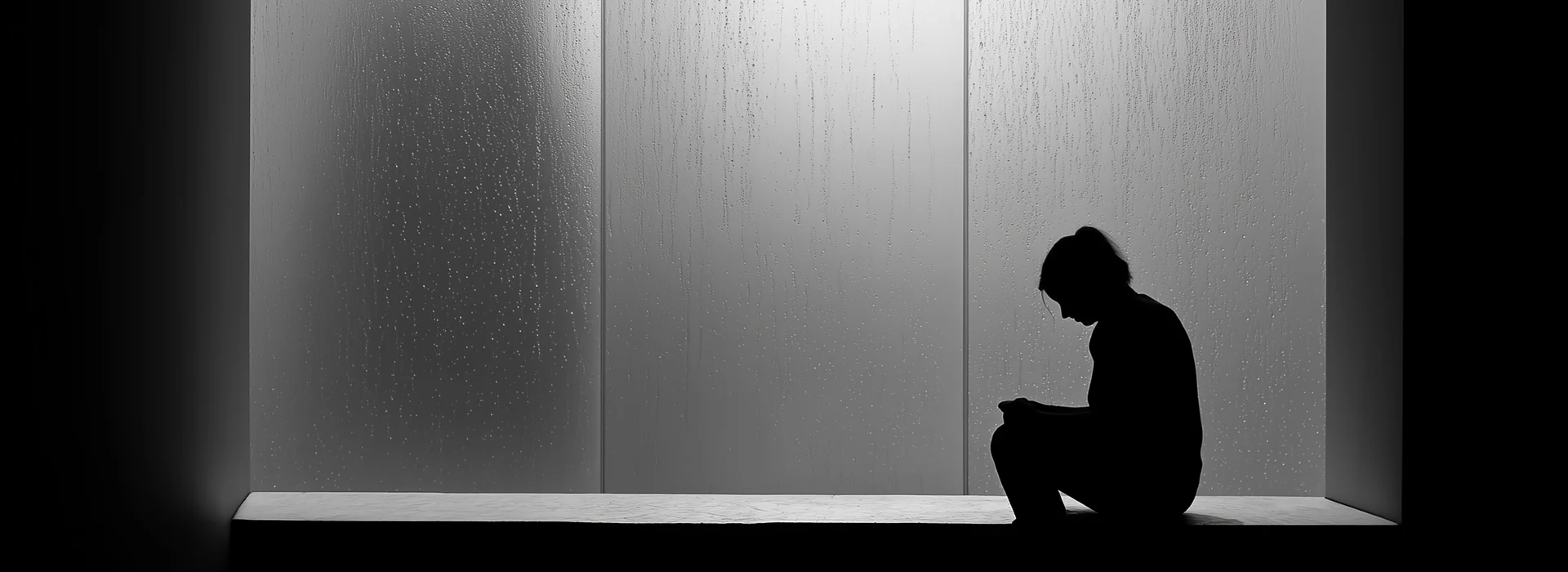
Table of Contents
- How Dual Diagnosis Treatment Works
- Signs You May Need Dual Diagnosis Care
- Need to Detox?
- Conditions Commonly Treated in Dual Diagnosis
- Inpatient vs. Outpatient Dual Diagnosis Options
- Need Alcohol Addiction Help?
- Insurance and Affordability for Dual Diagnosis in Los Angeles
- Inclusive and Localized Care Options in LA
- Substance Use Disorders in Co-Occurring Treatment
- Take the First Step with a Trusted Local Center

A dual diagnosis treatment center is a specialized facility that provides care for individuals who are dealing with both a mental health disorder and a substance use disorder at the same time. This condition—referred to as a co-occurring disorder—requires a coordinated treatment approach that addresses both challenges simultaneously.
Traditional rehab programs may only focus on addiction, while mental health care alone might overlook substance use issues. Integrated treatment programs, by design, offer a comprehensive approach that blends mental health and addiction therapy. These programs are staffed by professionals trained to treat complex, intertwined conditions.
If you’re exploring care for depression compounded by alcohol use, or anxiety worsened by drug misuse, a dual diagnosis center may offer the holistic and structured help you need. Understanding what these centers offer is the first step toward long-term recovery and improved well-being for those navigating both behavioral health and substance-related concerns.
How Dual Diagnosis Treatment Works
Dual diagnosis treatment centers are designed to treat individuals living with both a mental health condition and a substance use disorder. These co-occurring conditions often interact in complex ways, which is why integrated treatment programs focus on addressing both simultaneously. This approach ensures that individuals receive coordinated care tailored to their unique needs, minimizing gaps that can lead to relapse or worsening mental health symptoms.
A typical dual diagnosis treatment journey begins with a comprehensive psychological and medical assessment. This helps clinicians craft a personalized care plan that targets the specific combination of challenges each person faces. Treatment plans often combine psychiatric support, evidence-based therapies, medication management, and health education. Case managers and clinicians work together across disciplines to provide consistent, compassionate support throughout the recovery process.
CBT’s Role in Managing Dual Conditions
Cognitive Behavioral Therapy (CBT) is a key therapeutic approach used in dual diagnosis care. It helps individuals identify harmful thought patterns and beliefs that may fuel both mental health issues and substance use. By learning practical coping strategies, individuals gain tools to manage stress, avoid triggers, and foster long-term recovery. CBT can be adapted to fit various diagnoses and is commonly offered in both inpatient and outpatient dual diagnosis treatment programs.

Signs You May Need Dual Diagnosis Care
Recognizing whether you or someone close to you may need dual diagnosis treatment is an important step toward recovery. Many people who live with substance use issues also experience underlying mental health conditions, such as depression, anxiety, bipolar disorder, or trauma-related symptoms. When both are present, standard addiction care may not be enough. Integrated treatment programs are designed to address these co-occurring challenges together, improving your chances of long-term stability and quality of life.
If you’ve tried addiction recovery without success or find your mental health conditions worsen during periods of sobriety or relapse, you may benefit from a personalized approach that focuses on both areas simultaneously. Dual diagnosis centers near you specialize in mental health and addiction therapy, creating a compassionate environment that supports healing on multiple levels.
Checklist to Identify Need for Dual Care Services
If you relate to several of the following, a dual diagnosis program may be appropriate:
- You’ve experienced mood swings, anxiety, or trauma alongside substance use.
- You use substances to self-medicate mental health symptoms.
- Previous addiction programs haven’t addressed emotional issues.
- Withdrawal worsens psychological symptoms.
- You avoid treatment because of fear, shame, or confusion.
Reviewing these signs with a professional can help you determine the most effective path forward toward addiction recovery with mental health support.
Conditions Commonly Treated in Dual Diagnosis
Dual diagnosis treatment centers are designed to address both mental health conditions and substance use disorders together. Some of the most commonly treated pairings include conditions like depression, anxiety, PTSD, and various forms of addiction. Treating both aspects of a person’s health offers a more complete and lasting path to recovery. These programs are vital in helping individuals who struggle with substance abuse and mental illness receive cohesive and compassionate care.
Treating Depression in Dual Diagnosis Programs
Depression is one of the most frequently diagnosed mental health disorders among those facing addiction. In dual diagnosis care, clients receive therapeutic interventions like cognitive behavioral therapy (CBT), holistic activities, and medication management to address depressive symptoms. Depression in Dual Diagnosis care allows individuals to regain emotional stability and resilience, which supports long-term recovery.
Anxiety Support Within Dual Diagnosis Rehab Plans
Anxiety disorders, including generalized anxiety and panic disorders, often co-occur with substance misuse. Dual diagnosis treatment helps individuals manage anxiety using evidence-based tools like Anxiety Support in Rehab, medication when appropriate, and behavioral therapies. These integrated approaches lower the risk of relapse by fostering deeper emotional regulation and coping skills.
How PTSD Is Addressed in Dual Recovery
Post-traumatic stress disorder (PTSD) is closely linked with addiction, especially when trauma is untreated. Treatment centers utilize PTSD in Dual Diagnosis Programs, EMDR therapy, and peer support to help individuals process painful experiences. By addressing PTSD symptoms alongside substance dependence, recovery programs build a safer and more empowering healing environment.

Inpatient vs. Outpatient Dual Diagnosis Options
Inpatient Dual Diagnosis Care Options in Acton
Inpatient Dual Diagnosis Care offers around-the-clock support in a structured, residential setting. This format is ideal for those who need a highly focused environment away from triggers, or who are dealing with severe or unstable symptoms. In Acton and surrounding areas, inpatient dual diagnosis treatment typically integrates mental health counseling, psychiatric care, addiction therapy, and holistic support in a single location. It’s best suited for individuals who’ve experienced frequent relapses, multiple hospitalizations, or need safety monitoring during early recovery.
Outpatient Dual Diagnosis Services Near Acton
Outpatient Dual Diagnosis in Acton provides part-time access to addiction and mental health support while allowing you to maintain involvement in daily responsibilities like work, caregiving, or school. Near Acton, outpatient dual diagnosis programs often include individual therapy, group sessions, medication management, and case coordination. These programs can range from a few hours a week to more intensive daily schedules. Outpatient options are often a good fit for those with stable housing, transportation access, and a strong support system that reinforces recovery at home.
Insurance and Affordability for Dual Diagnosis in Los Angeles
Getting care for co-occurring mental health and substance use disorders shouldn’t be delayed due to financial concerns. In Los Angeles, many dual diagnosis treatment centers accept a range of insurance plans, making integrated care more accessible for residents. Coverage may include both inpatient and outpatient services, therapy, medication management, and relapse prevention programs—all tailored for people with co-occurring disorders.
Medi-Cal, California’s Medicaid program, plays a critical role in expanding access to dual diagnosis treatment. Many clinics and providers throughout Los Angeles County are approved Medi-Cal providers, making it possible for residents with low income to receive quality, coordinated care. Additionally, some plans under Covered California and private insurers also support partial or full costs of dual diagnosis treatment.
Before enrolling in a program, it’s helpful to verify what your insurance covers. Look for benefits labeled under behavioral health, substance use treatment, or integrated care. If you’re uninsured, some Los Angeles County treatment programs use sliding-scale fees or offer assistance through state-funded services to ensure affordability for all communities.
Inclusive and Localized Care Options in LA
Los Angeles is home to a wide range of dual diagnosis resources that reflect the county’s diversity. Many centers offer culturally tailored care to better serve communities often underserved in traditional treatment settings. These programs may include bilingual (Spanish) dual diagnosis programs, trauma-informed care models rooted in cultural understanding, and clinicians trained to address complex social and identity-based needs.
Local providers also recognize that recovery requires more than a one-size-fits-all approach. Some facilities prioritize accessibility for Medi-Cal recipients and individuals searching for care near home. Whether you’re seeking addiction recovery with mental health support in East LA or looking for dual diagnosis specialists in Southern California fluent in Spanish, personalized help is available across the region.
LGBTQ+ Support in Dual Diagnosis Programs
Specialized dual diagnosis programs in LA increasingly offer affirming rehab services in LA for LGBTQ+ clients. This includes gender-affirming environments, staff trained in LGBTQ+ issues, and therapeutic spaces that acknowledge the unique stressors this population faces. These supports are essential to building safety and trust during recovery.

Substance Use Disorders in Co-Occurring Treatment
Substance use disorders (SUDs) frequently appear alongside conditions like anxiety, depression, or PTSD in dual diagnosis treatment. These disorders may involve alcohol, prescription medications, opioids, stimulants, or other illicit drugs. In integrated programs, treatment often combines cognitive behavioral therapy (CBT), medication-assisted therapy (MAT), trauma-informed care, and relapse prevention strategies. These evidence-based approaches help individuals address both the root causes of addiction and the psychological patterns that reinforce use. Recovery from co-occurring conditions requires not just stopping substance use, but building emotional regulation, resilience, and access to long-term support—all tailored to each person’s dual needs. Learn more about support for drug-related issues as part of comprehensive co-occurring treatment.
Take the First Step with a Trusted Local Center
Finding the right support for co-occurring mental health and substance use conditions can be life-changing. If you’re ready to seek help or are exploring options for a loved one, Los Angeles County is home to many compassionate, comprehensive dual diagnosis treatment programs. From bilingual and culturally sensitive care to trauma-informed and insurance-covered services, you’ll find programs designed to meet diverse needs. Whether you’re looking for inpatient structure or outpatient flexibility, taking the first step starts with choosing a center that understands integrated recovery.
You’re not alone—and support is close by. Explore your local options today and move toward lasting wellness with confidence.
Frequently Asked Questions
What qualifies as a dual diagnosis?
A dual diagnosis refers to when a person experiences both a mental health disorder and a substance use disorder at the same time. These conditions interact in complex ways, often making symptoms more severe and recovery more challenging without integrated care. Common examples include depression and alcohol use disorder or anxiety paired with prescription drug misuse.
How do I know if I or my loved one needs dual diagnosis treatment?
If you or someone you care about struggles with substance use and also has persistent emotional, psychological, or behavioral issues, dual diagnosis care may be appropriate. Warning signs can include mood swings, trouble functioning in daily life, repeated relapses, and worsening mental health when not using substances. An evaluation by a licensed provider can help clarify the best level of care.
What types of mental health conditions are treated in dual diagnosis centers?
Dual diagnosis programs treat a wide range of mental health conditions alongside substance use disorders. Commonly treated mental health issues include:
Is dual diagnosis treatment available in Los Angeles?
Yes, Los Angeles offers a wide range of dual diagnosis treatment programs, including both inpatient and outpatient options. Many centers specialize in co-occurring care that is trauma-informed, culturally competent, and accessible for both English and Spanish speakers. Local programs also range from private to county-funded services offering comprehensive, integrated support.
How much does dual diagnosis rehab cost in California?
Costs vary widely based on the level of care (inpatient vs. outpatient), location, length of stay, and whether the facility is private or public. Inpatient dual diagnosis rehab in California can range from a few thousand to tens of thousands of dollars per month. However, sliding-scale fees and Medicaid-funded options are also available, especially in Los Angeles County.
Does my insurance cover dual diagnosis treatment?
Many insurance plans, including private insurance, Medicaid (Medi-Cal in California), and some employer-sponsored plans, offer partial or full coverage for dual diagnosis treatment. Coverage depends on your specific benefits and whether the center is in-network. It’s typically helpful to verify insurance with the facility directly or through a provider directory.
What therapies are used in dual diagnosis care?
Dual diagnosis treatment typically includes a combination of evidence-based therapies tailored to address both substance use and mental health conditions. These may include:
Can I receive outpatient dual diagnosis treatment near me?
Yes, outpatient dual diagnosis programs are available throughout Southern California, including Los Angeles neighborhoods and nearby counties. These programs offer flexible care while allowing you to remain at home or continue working. They typically include therapy, medication management, and case coordination.
What are the success rates for dual diagnosis programs?
Success rates for dual diagnosis programs vary depending on the individual, length of treatment, and how integrated the care is. Generally, outcomes improve significantly when both mental health and substance use disorders are treated together rather than separately. Ongoing aftercare and community support are also key to sustained recovery.










































